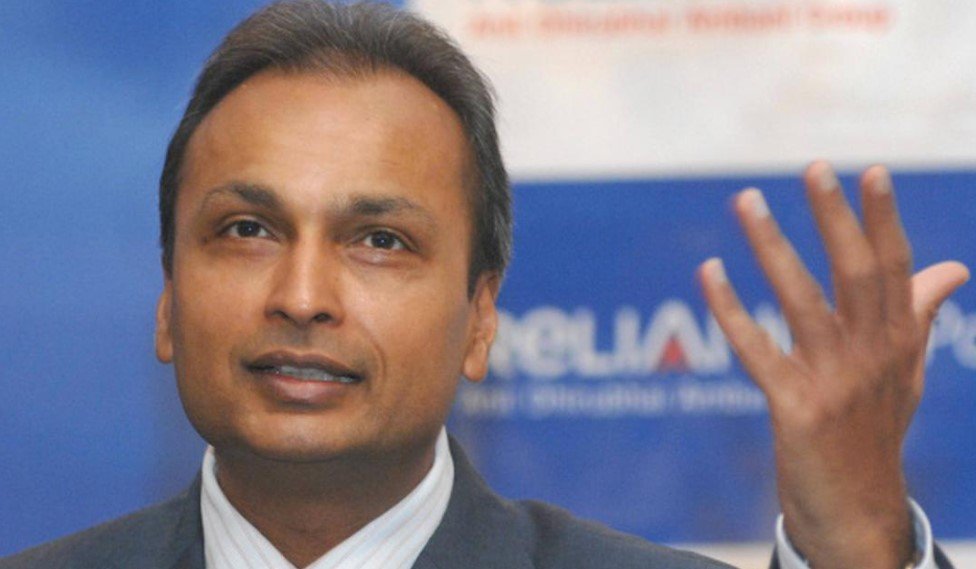Anil Ambani has strongly rejected fraud allegations from Bank of India over a loan account linked to Reliance Communications. The bank recently labeled the account fraudulent, claiming funds meant for business use were diverted, sparking a major controversy in India’s corporate world on August 24, 2025.
Background of the Loan Fraud Allegations
Bank of India has accused Reliance Communications and its former leader Anil Ambani of mishandling a loan worth about 725 crore rupees. The funds, borrowed in 2016 for buying spectrum, allegedly ended up in mutual funds and fixed deposits instead.
This move follows a similar action by State Bank of India, which also tagged the account as fraudulent earlier this year. Reports show the total outstanding amount stands at 724.78 crore rupees, turning into a non-performing asset by 2017.
The bank’s notice named Ambani and other key figures, pointing to violations of loan terms. This has led to wider scrutiny, with the Central Bureau of Investigation stepping in after complaints from multiple lenders.
Public records reveal that Reliance Communications faced massive debts, leading to insolvency proceedings. The company owed billions to over 50 banks, but settled for a tiny fraction under court oversight.
Anil Ambani’s Strong Denial and Counterclaims
Ambani issued a statement denying all charges, calling the bank’s action unfair and selective. He stressed his role as a non-executive director ended in 2019, with no involvement in daily operations.

He accused Bank of India of ignoring natural justice rules by not sharing key documents or allowing a personal hearing. Ambani noted that the bank sent show-cause notices to 13 people but dropped them for everyone except him.
In his response, Ambani highlighted that the case dates back over a decade. He plans to seek legal remedies, citing recent Reserve Bank of India guidelines from July 2024 that require fair processes.
Ambani’s team argues this violates Supreme Court and Bombay High Court judgments on fair treatment. He remains confident in clearing his name through proper channels.
Details of the Alleged Fund Diversion
The core issue revolves around a 2016 loan intended for telecom spectrum purchases. Bank of India claims the money was redirected to other investments, breaching sanction terms.
Here are key elements of the allegations:
- Loan amount: Around 725 crore rupees disbursed to Reliance Communications and subsidiary Reliance Telecom.
- Purpose: To fund spectrum acquisition for mobile services.
- Diversion claims: Funds reportedly moved to mutual funds and fixed deposits, not used as agreed.
- Timeline: Loan became non-performing in 2017, amid the company’s growing financial troubles.
Investigations show similar patterns in other loans, with total fraud estimates reaching thousands of crores across banks.
| Key Loan Details | Amount (in Crore Rupees) | Year Issued | Status |
|---|---|---|---|
| Bank of India Loan to RCom | 725 | 2016 | Fraud Tagged |
| Total RCom Debt to Banks | 49,000+ | Various | Mostly Settled at 0.92% |
| Outstanding with BoI | 724.78 | N/A | Non-Performing Since 2017 |
This table outlines the scale of the financial issues at play.
Impact on Ambani’s Business Empire
The fraud tag has rippled through Ambani’s other ventures, though companies like Reliance Power and Reliance Infrastructure claim no direct hit. Their shares dropped up to 5 percent in recent trading sessions amid the news.
Reliance Power stated the probe focuses only on past Reliance Communications matters and won’t affect current operations. Similarly, Reliance Infrastructure echoed that sentiment, emphasizing separate business lines.
Market watchers note this adds to Ambani’s ongoing challenges, including past bankruptcies and legal battles. However, his firms continue to secure new deals in power and defense sectors.
Recent events include CBI searches at Ambani’s Mumbai home linked to a 2,929 crore rupees fraud case. Despite this, Ambani denies any wrongdoing and points to his limited role post-2019.
Legal and Regulatory Developments
The Central Bureau of Investigation has filed a criminal case against Ambani and others based on State Bank of India complaints. This follows Enforcement Directorate actions, including a lookout notice in a related 17,000 crore rupees probe.
Reserve Bank of India rules mandate banks to classify fraud after proper reviews. Ambani argues Bank of India skipped steps, like providing evidence and hearings, which could lead to court challenges.
Experts say this case highlights issues in India’s insolvency framework, where massive debts often settle for pennies. For instance, Reliance Communications’ 49,000 crore rupees debt resolved for just 455 crore rupees, raising questions about bank recoveries.
Ongoing committee of creditors oversees the resolution, but fraud tags could complicate asset sales and repayments.
Broader Implications for India’s Banking Sector
This scandal underscores rising non-performing assets in telecom and highlights selective enforcement concerns. It ties into national debates on corporate accountability, especially with high-profile figures.
Analysts predict more probes into old loans, potentially affecting other tycoons. The government has pushed for stricter fraud detection, with over 30 billion rupees in losses reported in similar cases.
For everyday borrowers, it contrasts sharply with harsh treatments for small defaults, fueling public frustration. Logical reasoning suggests stronger regulations could prevent such diversions, protecting public money in state-owned banks.
As this unfolds, it may influence investor confidence in Indian markets. Recent trends show a spike in fraud reports, with banks like Bank of India leading classifications.
What do you think about these developments? Share your thoughts in the comments below and spread the word to keep the conversation going.
